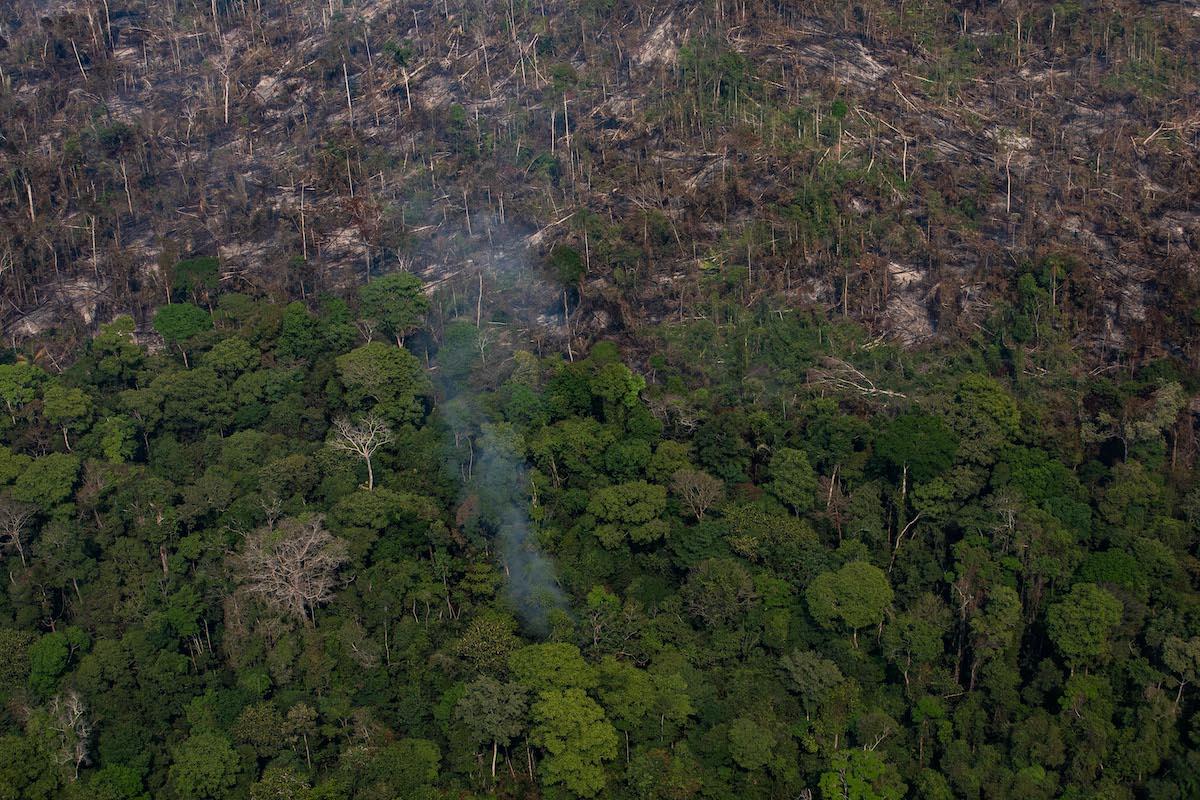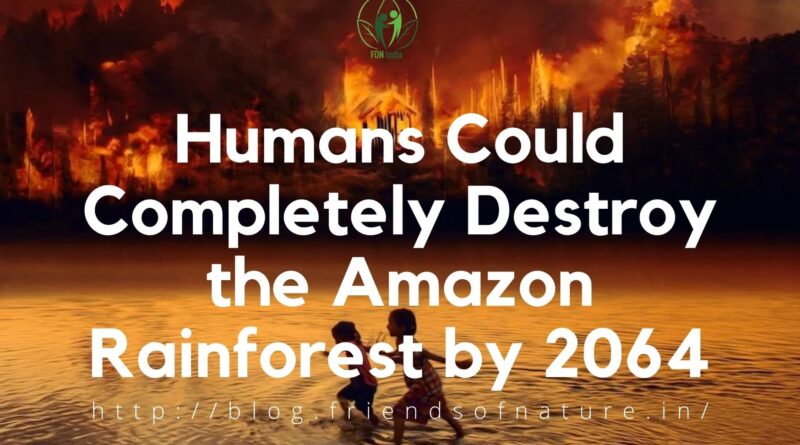Amazon rainforest will vanish by 2064
Humans Could Completely Destroy the Amazon Rainforest by 2064. Amazon rainforest will vanish by 2064 due to alarming levels of deforestation and droughts occurring in the region from the climate change.
The future of the world’s largest rainforest looks bleak. A new report for Environment: Science and Policy for Sustainable Development concluded that the Amazon rainforest will collapse and largely become a dry, shrubby plain by 2064. Development, deforestation and the climate crisis are to blame, study author and University of Florida geologist Robert Toovey Walker found. Walker reviewed recent research, offering that heavy development in Amazonian nations depleted the forest and threatens to push it over the edge towards destruction.
If this happens, it would have absolutely devastating consequences on Amazonia itself, the animals and people who call the rainforest home, and the entire planet.

Longer dry seasons, which the rainforest is already experiencing and which are exacerbated by deforestation and the climate crisis, prevent rainforest canopies from recovering from fires. Flammable grasses and shrubs “permanently invade” and take over the landscape; the tropical rainforest dries out and transforms into a tropical savanna, the study found.
Earlier this year, a different study found that the Amazon ecosystem could collapse in less than 50 years with deforestation being the primary culprit. Fire, deforestation and logging are leading causes of tree loss. Industrial-scale cattle ranching and soybean production, in particular, drive the latter. Additionally, illegal gold mining is laying the forest bare and polluting rivers.
Brazil’s President Jair Bolsonaro has been criticized for opening the forest to exploitation and inciting forest destruction. Under Bolsonaro, Amazon deforestation skyrocketed to a 12-year high, and activists warned that he used the pandemic as a smokescreen to undermine protections for the rainforest.
As the forest transforms into a grassland, all the benefits of the massive ecosystem will also disappear and a “multidimensional catastrophe” will ensue, Walker wrote in the study.
Walker concluded that it was “doubtful” that the Amazon forest could remain resilient into the future given the layers of threats facing it.
The number of fires this year in the Amazon had exceeded last year’s horror fire season by October.
And we humans destroyed another 1,202 square km (464 square miles) of forest in Brazil during the first four months of 2020 – 55 percent more than during the same time last year.
The loss of biodiversity and invaluable habitats, release of carbon from the fires, and other socioeconomic and environmental consequences have concerned scientists around the world.




